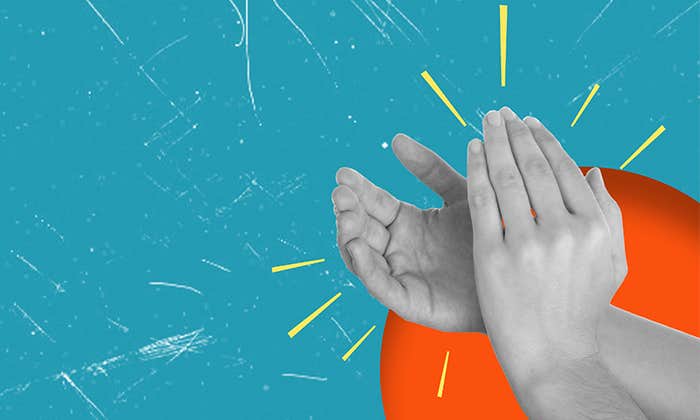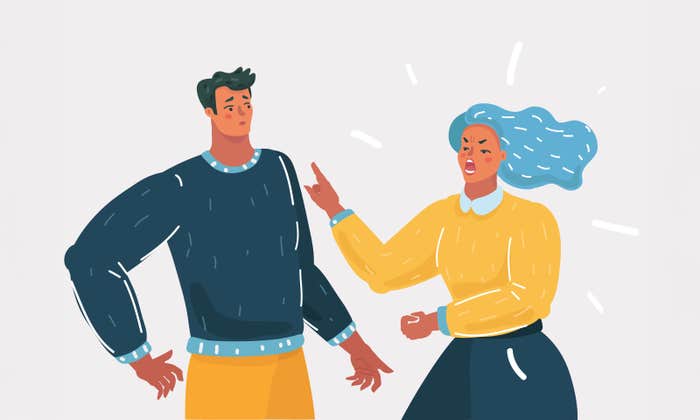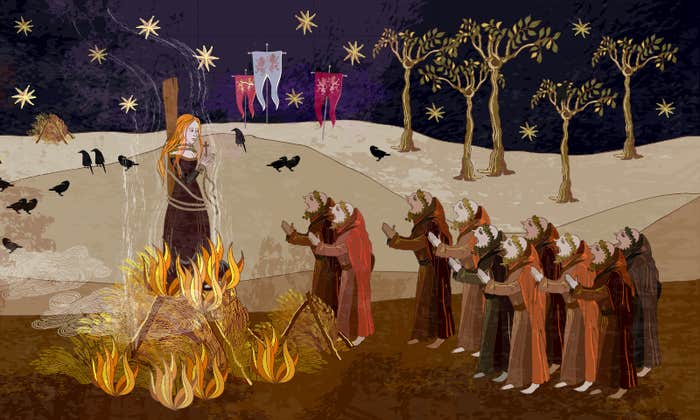As a biologist who studies animal behavior, particularly the long-term stability of the societies of different species, our own included, I’ve traveled through diverse cultures around the world. The word I hear everywhere I go, a badge of honor to all people, is freedom. Americans have made pride in freedom a national pastime since winning their independence. But at the time of the Revolutionary War, the British thought of themselves as free compared to repressive European countries of the day. What is this warm glow that arises within us from feeling free?
On one of my expeditions to New Guinea, an elderly man boasted that his tribe did as they wished. Invited to join a picnic in Iran, I listened to a family joyfully tell me about the liberties their nation provided, not realizing how Americans might see their lives differently. The fact is, “freedom” and “free” are among the most common words in all national anthems. Even Afghanistan, which strikes the west as a land perennially in chaos, long had an anthem declaring it “the nation of freedom” (until that verse was replaced in 2006 by another highlighting the names of the country’s major tribal groups). People around the globe—perhaps all but the most repressed—appear to think of themselves as free. How can we be free, and they be so delusional?
Socially imposed limits on freedom are indispensable to happiness.
I’ve come to appreciate that much human activity can be understood in terms of our pursuit of the choices a society opens to us. But this freedom is never simple. Permissiveness isn’t uncontrolled. A society defines itself in part by what it won’t tolerate, and the proper conduct required from its members. Even societies that take pride in a commitment to personal rights exist by exacting a loss of choice on members for the sake of safety and predictability. By its nature, society membership entails a loss of freedom.
What choices do societies curtail? For most other species, the constraint appears to be that members affiliate with each other and consort little if at all with outsiders. Chimpanzees attack all foreign conspecifics (unless it’s a female in heat), while the related bonobo can have friends in other communities but always return to their territory at the end of the day. In both instances, there’s a clean separation of the societies, based on the animals’ knowledge of each other.
Human societies come with further obligations. People must look and act appropriately, adhering within accepted limits to whatever differences set us apart from them. I call such distinctions markers of identity. These markers, which other primates lack, can include devotion to a particular flag, manners of dress, hairstyles, languages, gestures, moral attitudes, and even slight differences, detected subconsciously, in how we walk and smile. These traits are so numerous and ever-present that human beings are walking billboards for their identities.
We feel free insofar as our actions and appearance fall within the socially sanctioned bounds of these sometimes unstated rules (weighing some of them more than others), our expressions of our identity adhering to our commitments to the society and to our station and status within it. Generally speaking, the more privations a society has undergone, the more rigid the expectations put on its people.1
In a thriving democracy, persons with radical takes on faith or dress retain citizenship, but things can get nasty for those who don’t conform to the required markers when times are tough. Further, the repulsion felt toward social deviants can be so profound that we treat them more harshly for the same offense than we do a foreigner—an overreaction known in psychology as the black sheep effect.2 Outliers poorly matching what is “normal” are ostracized, stigmatized, pressured to change or treated as foreign, depending on the kind and extent of the aberrance. Such censure puts a rein on what goes on in a society.3
How can we be free, and they be so delusional?
Extremist regimes aside, by and large citizens everywhere gladly embrace the restrictions placed upon them, believing in the rightness of their society and finding comfort within the restraints it imposes. A society’s members seldom have to be sold on why their ways are best: They absolutely know how things should be, and for them a life arranged that way is worth living. The return from the society is substantial: a sense of ease, even camaraderie, around likeminded others; security and social support; access to resources, choices for employment, suitable marriage partners, the arts, and much more.
While people value their freedom, socially imposed limits on freedom, defined by the currently agreed-upon markers of identity, are as indispensable to happiness as freedom itself. If we are overwhelmed or unsettled by the options available to us and other members, and by the acts of those around us, what we feel is turmoil, not freedom. For western-developed societies, this had led to what psychologist Barry Schwartz calls the paradox of choice, where an overabundance of options makes people unhappy.4 What we think of as freedom then is both restricted and restricting. Yet only an outsider would see the restrictions are oppressive. For this reason, individualist societies that promote a right to be different, like the United States, and those that nurture a collectivist identity, such as Japan or China (where people emphasize the support given by the collective) can both celebrate the opportunities and happiness their society offers5; indeed there’s little difference in people’s overall happiness (well-being) across countries.6
Regardless of a society’s permissiveness, unity falters if its citizens have the freedom (or feel they should have the freedom) to act outside the comfort zone of others. Often our discomfort around such acts is expressed as disgust or fear, and we (whoever we may be) verbalize the sensations in terms of morality. That the freedom to do such things could be desirable will seem absurd to us, as we see today, for example, with sexual acts some deem inappropriate, or the right to an abortion or the choice to carry an assault rifle. The schism makes constructive communication between social factions all but impossible. Such differences give rise to weaknesses in the social fabric that have always existed, but nations increasingly grapple with today.
By its nature, society membership entails a loss of freedom.
Ethnic diversity presents even greater complications in the pursuit of freedom. Homo sapiens is the only species where groups of individuals that were originally from different sources can merge into a single society, generating ethnicities and races, and that creates unusual challenges. The difficulty is balancing one group’s pursuit of freedom with another group’s comfort. All too often, inequalities in personal freedom emerge between groups. Minorities must fit in with what the society finds acceptable—which often means the preferences of the dominant group, which holds primary sway over the identity, symbols, and power of a nation.
Minorities are put in the position of having to invest in identifying not only with the society where they are citizens but with their own ethnicity, too.7 Hispanic Americans, for example, are constantly registered by fellow Americans, and almost constantly see themselves, as Hispanic. By contrast, the dominant members, being the cultural default of their society, seldom need to think about their own ethnicity or race (except to the degree that they must when pulling together in times of economic distress, as is the situation for working class whites today). This gives the majority individuals greater freedom: They enjoy the luxury of considering themselves as one-of-a-kind, idiosyncratic persons.8
In short, human beings give up a degree of freedom, and to some extent equality, to gain the security and social and economic payoffs of belonging to a nation, with some ethnicities relinquishing more than others.
Still, the pleasure that freedom gives us is undeniable. What’s hard is recognizing that dissimilar peoples elsewhere feel the same thing, and for equally good reason; or how easily our outlook on freedom can squelch what others believe to be just behavior.
This essay is adapted from The Human Swarm: How Societies Arise, Thrive, and Fall (Basic Books, 2019), author Mark W. Moffett’s contribution to what his Ph.D. mentor, Edward O. Wilson, calls consilience—the goal of bringing together the biological and social sciences.
References
1. Gelfand M.J., et al. Differences between tight and loose cultures: A 33-nation study. Science 332, 1100–1104 (2011).
2. Marques J.M., Yzerbyt, V.Y., & J-P Lyons, J-P. The “black sheep effect”: Extremity of judgments towards ingroup members as a function of group identification. European Journal of Social Psychology 18, 1–16 (1988).
3. Kurzban R. & Leary, M.R. 2001. Evolutionary origins of stigmatization: The functions of social exclusion. Psychological Bulletin 127, 187–208 (2001).
4. Schwartz B. The Paradox of Choice: Why More is Less Harper, New York, NY (2004).
5. Guibernau M. The Identity of Nations Polity Press, Cambridge, U.K. (2007); Blanton H. & Christie, C. Deviance regulation: A theory of action and identity. Review of General Psychology 7, 115–149 (2003); Jetten J., Postmes, T., & McAuliffe, B. We’re all individuals: Group norms of individualism and collectivism, levels of identification and identity threat. European Journal of Social Psychology 32, 189–207 (2002).
6. Burns, R.A. The utility of between-nation subjective wellbeing comparisons amongst nations within the European Social Survey. Journal of Happiness Studies 18, 1–23 (2018).
7. Deschamps J-C. Social identity and relations of power between groups. In Tajfel, H. (Ed.) Social Identity and Intergroup Relations. Cambridge University Press (1982).
8. Lorenzi-Cioldi F. Group status and individual differentiation. In Postmes, T., & Jetten, J. (Eds) Individuality and the Group: Advances in Social Identity SAGE, London (2006).
Lead image: Milan M / Shutterstock


























